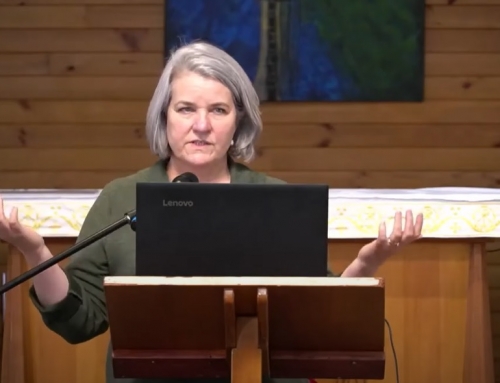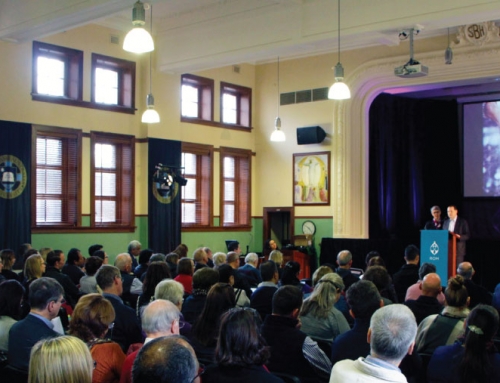In the first five years of his papacy, Saint Paul VI wrote seven encyclicals. In the final ten years, he wrote none. I’m not sure of the reason why, but I can only imagine that it had something to do with the reaction to the final encyclical he did write, Humanae Vitae, which reaffirmed the Church’s prohibition against the use of artificial contraception. It is said that this was the first encyclical ever that was met with open dissent from within the Church, including from laity, clergy, bishops and even cardinals.
For those unaware of the background to the writing of the encyclical, a committee was established to study the question of birth control in light of the invention of the contraceptive pill. The majority recommended to the Pope that some use of artificial contraception be approved for married couples and their recommendations were – strategically – leaked to the media in order to build an expectation that the teaching would change.
After studying the matter himself and praying ‘constantly’ about it, Pope Paul VI decided that it was his duty to reaffirm the Church’s teaching, and once again state that there was no place in marriage for the use of artificial contraception.
Imagine just for a moment how much courage it took to do what he believed to be right, even in the face of opposition from both inside and outside the Church. Pope Paul VI sought to protect the faithful, and the world, against what he foresaw as the consequences of a contraceptive culture, namely that it would:
- provide a wide opening for marital infidelity;
- result in a general lowering of moral standards;
- see women reduced to mere instruments for the satisfaction of men’s own desires; and
- enable public authorities to impose the use of contraception on its citizens.
I don’t think anyone could deny that his prophesies have been borne out over the last 50 years. A brief look at our culture confirms that these predictions have been visited upon us in ways Pope Paul VI could never have imagined. I can’t imagine that in his wildest dreams (or nightmares) that Paul VI could have conceived that Tinder would be a thing!
And if he was trying to protect our culture from such atrocities, I dare say that he was particularly trying to protect women. Indeed, one of the great ironies of Humanae Vitae is that it has been decried as being anti-woman when in reality, it is incredibly pro-woman. I would go as far as to say that it is the most pro-woman document in recent history. If the world had listened to Paul VI instead of ridiculing him, life today would be much better for women.
Choosing between work and motherhood
Firstly, women wouldn’t have to choose between work and motherhood. The widespread availability of artificial contraception has brought with it an expectation that women would use contraception, and delay motherhood for the purposes of study and career. A couple of years ago, the Royal Australian and New Zealand College of Obstetrics and Gynaecology sought to host a debate titled Membership before Maternity Leave: Should Every Registrar Have a Mirena? (A Mirena is a contraceptive device that lasts for five years.) I know women who have lost jobs after falling pregnant with their third child. There was an unwritten rule amongst female corporate lawyers that, just like on Noah’s Ark, there was a limit of two. And in line with Pope Paul VI’s prediction that governments could impose the use of contraception of its citizens, former MPs have lobbied for requiring a woman prove that she was using medium-term contraception before applying for the dole.
The effect on marriage
Secondly, more people would get – and stay – married. If sexual activity still had with it the potential that a child would be conceived, it would not be treated so casually. By separating sex and babies, we have removed any need for commitment. Since 1968, marriage rates have dropped, and divorce and infidelity rates have increased. At its height, AshleyMadison.com, a ‘dating’ website specifically for married people, boasted 1 million Australian members, or 1 in 8 of Australia’s married population. Breakdown in marriages have a disproportionate effect on women, who often bear the greater financial hardship when a marriage ends.
The use of IVF
Thirdly, not as many women would need to use IVF to fall pregnant. Our contraceptive culture means women are encouraged to use hormonal contraception during their most fertile years and then, when their fertility has decreased, to use a different set of hormones in order to conceive a child. Contraception has enabled a vicious cycle of hormonal treatment for women that can last half their lives and have devastating effects on their health.
Health risks
Fourthly, there would be fewer health risks to women. The oral contraceptive pill brings with it health risks as mild as headaches but as extreme as depression, blood clots and strokes. Women are meant to – literally – internalise the entire responsibility for avoiding pregnancy, even to the detriment of their short- and long-term health. Men are let entirely off the hook when it comes to responsibility. degree—from responsibility for their sexual aggression.
#MeToo
Which leads us to our final point. If society had listened to Pope Paul VI, the whole #MeToo phenomenon wouldn’t have happened, or at least not to the extent that we are seeing it occur. Separating sex from babies has led to an expectation that women can and should be available for sex at any time. Pope Paul VI was right when he foresaw that contraception would lead to a reduction of women to mere instruments for the satisfaction of male desire. The countless stories of sexual harassment bear this out.
Over the years, much ink has been spilled over Humanae Vitae, especially this year, as we celebrated the 50th anniversary of its publication and the canonisation of Pope Paul VI. I hope so. I hope that in looking back at this historic document, people in our own time might just be able to appreciate the prophetic wisdom of Pope Paul VI, and that the benefit of hindsight will invite them to carefully consider this teaching. Maybe, just maybe, our generation will provide the fertile ground in which to receive it, even if 50 years late!





